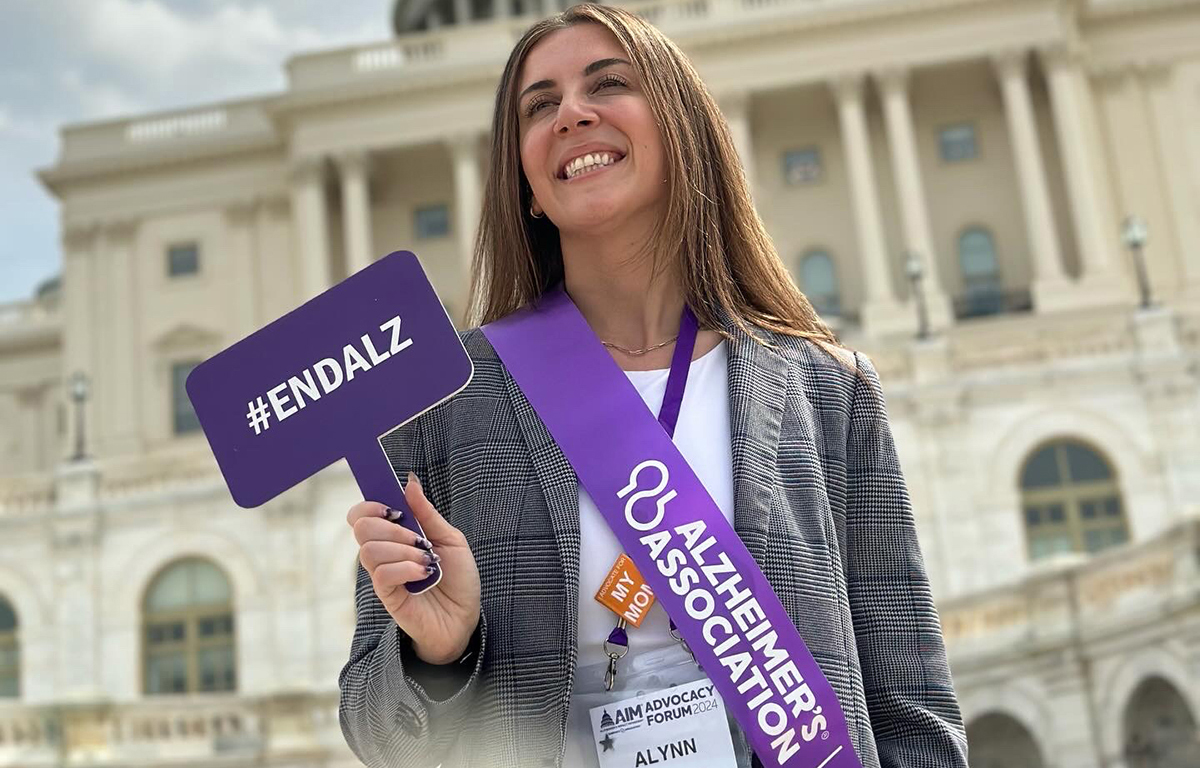|
Discover everyday ways to work toward a healthier brain.
|
|
|
|
|
Top Tips for Better Brain Health
|
|

|
|
Alynn, a dedicated Alzheimer's Association volunteer and community educator
|
|
Dear Friend,
When it comes to health and wellness, many think about eating better, hitting the gym or going for a walk. Right now, two-thirds of Americans have at least one major potential risk factor for dementia. This staggering statistic underscores that brain health should be a priority. There are many actions we can take that can help protect our brain health, including habits like healthy eating and exercise.
To help you get started, the Alzheimer's Association has identified 10 Healthy Habits for Your Brain — science-backed habits that may lower the risk of cognitive decline and possibly developing Alzheimer's disease or another dementia.
It's never too early or too late to take steps to help promote your brain health. We asked Alynn — a dedicated Alzheimer's Association volunteer and community educator who lost her mother to Alzheimer's — how she works some brain-healthy habits into her daily routine:
|
|
 |
Healthy Habit: Get moving
|
|

|
Engage in regular exercise. This includes activities that raise your heart rate and increase blood flow to the brain and body. Find ways to build more movement into your day — walking, dancing, gardening — whatever works for you.
How Alynn puts this habit into practice:
"I make time for physical activity every day. I keep easy equipment at home, like a yoga mat or a few dumbbells, that I can use if I can't get to the gym. I try to schedule my workouts the day before or a week before so that it's already in my calendar. I try to work out either first thing in the morning before I start my day or in the evening."
|
|

|
 |
Healthy Habit: Eat right
|
|

|
Eating healthier foods can help reduce your risk of cognitive decline. This includes more vegetables and leaner meats/proteins, along with foods that are less processed and lower in fat. Choose healthier meals and snacks that you enjoy and are available to you.
How Alynn puts this habit into practice:
"I try to eat whole foods as much as possible and prioritize cooking at home, so I know exactly what goes into everything I eat. Sometimes it's hard to eat all the fruits and vegetables that go bad quickly. A tip I found helpful is to freeze the fruits and vegetables and make them into popsicles or ice cubes that you can use in smoothies or add to yogurt."
|
|

|
 |
Health Habit: Sleep well
|
|

|
Good quality sleep is important for brain health. Stay off screens before bed and make your sleep space as comfortable as possible. Do all you can to minimize disruptions. If you have any sleep-related problems, such as sleep apnea, talk to a health care provider.
How Alynn puts this habit into practice:
"I've implemented certain little habits to try to quiet my mind so that I can fall asleep and wake up energized. I minimize my screen time a few hours before going to bed. I have not had a TV in my room for years, because that can be an easy habit to fall into. And I found certain apps to be helpful that provide white noise at night, or a sleepcast, which is almost like a meditation that talks to you and helps you fall asleep."
|
|

|
 |
Healthy Habit: Challenge your mind
|
|

|
Be curious! Put your brain to work and do something that is new for you. Learn a new skill. Try something artistic. Challenging your mind may have short- and long-term benefits for your brain.
How Alynn puts this habit into practice:
"I try to keep my mind challenged every day by starting my morning doing a crossword puzzle. It's something simple that only takes a few minutes. I also try to learn foreign languages. There are apps I use that I find helpful that gamify learning a language. It challenges me and gets me out of my comfort zone."
|
|

|
I hope Alynn's tips give you an idea of how simple it can be to work on your brain health every day. Take a few minutes to explore our 10 Healthy Habits for Your Brain, start incorporating them into your day-to-day life and share them with your friends and family.
Valuable resources like these are only possible thanks to the incredible generosity of our community. They're just one part of the work that you help fuel: our mission to lead the way to end Alzheimer's and all other dementia — by accelerating global research, driving risk reduction and early detection, and maximizing quality care and support.
Thank you once again for all you do.
Best wishes,
Katie Evans
Chief Programs and Engagement Officer
P.S. Resources like our 10 Healthy Habits for Your Brain — which your generosity helps make possible — are a critical part of our work to fight Alzheimer's. Right now, you have a chance to make 2X the impact on that fight during our Double the Love Match Challenge. Thanks to a generous donor who wishes to remain anonymous, any donation you make before February 17, up to a total of $100,000, can go TWICE AS FAR to help us keep providing valuable resources, strengthen vital care and support for everyone impacted today and push promising research into the future.
|
|
Your donation will strengthen our efforts to advance Alzheimer's care, support and research. From face-to-face support to online education programs and promising global research initiatives, your gift makes a difference in the lives of all those affected by Alzheimer's and other dementias in your community and across the world. Thank you for your continued support.
Alzheimer's Association Home Office, 225 N. Michigan Ave., Fl. 17, Chicago, IL 60601
© 2025 Alzheimer's Association. All rights reserved.
800.272.3900 | alz.org® | Donate
Please add [email protected] to your address book to ensure you receive all future emails.
Having trouble reading this email?
View it in your browser
View your email preferences or unsubscribe.
|
|
|








